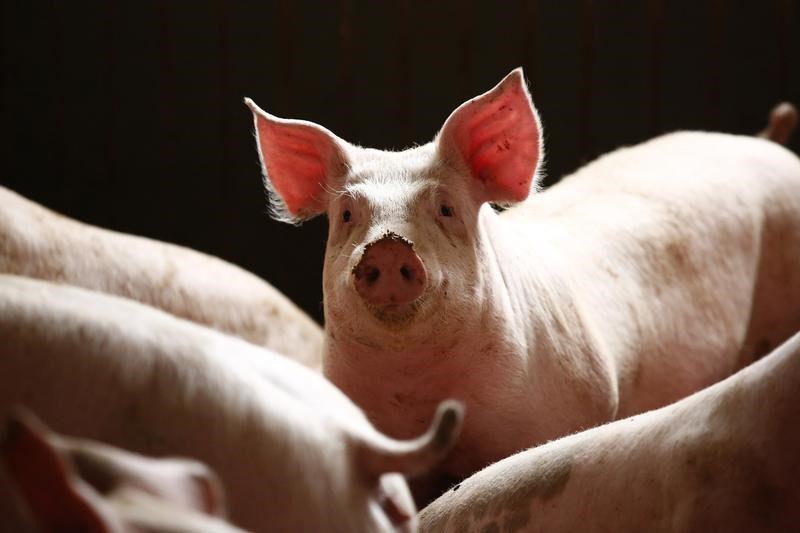(Bloomberg) -- As a deadly pig virus strikes China, the world’s biggest pork consumer won’t have many places to turn if it needs to boost imports.
So far, it’s too early to tell whether the outbreak of African swine fever -- a highly contagious, pig-eradicating virus -- will have a significant impact on China’s domestic pork production, said Joe Schuele, a spokesman for the U.S. Meat Export Federation. Still, it’s unsettling to see a disease this deadly, which no other country has been successful at fighting, spreading among the world’s densest hog population, said Brett Stuart, founding partner of Global AgriTrends, a market intelligence firm.
If massive losses do ensue, the European Union -- the top global pork exporter -- might be the first to step in and fill the gaps for China, said Heather Jones, an analyst at Vertical Group. After that, there’s the U.S., but the Asian nation has levied tariffs against American shipments. What could end up happening: China turns to the EU and other importing nations start buying more American pork, she said.
U.S. pork producer Hormel Foods Corp (NYSE:HRL). said it is “monitoring the situation closely,” while Smithfield Foods Inc. and Tyson Foods Inc (NYSE:TSN). declined to comment.
Canada, Brazil and Chile are probably next in line to benefit from a rise in demand. In particular, Brazil has a rapidly growing pork export business, and its shipments this year to China through July have more than tripled, Global AgriTrends’ Stuart said.
“Brazil and China have cozied up significantly on meat trade,” he said.
China produced 53.4 million metric tons of pork in 2017 and imported about 1.62 million tons, according to U.S. Department of Agriculture data.
Since the country’s pork imports only account for about 3 percent of its industry, domestic production losses could pull on world supplies in a dramatic way. For example, if the nation lost 17 percent of its output, it would take all the traded pork in the world to make up that demand, Stuart said.
